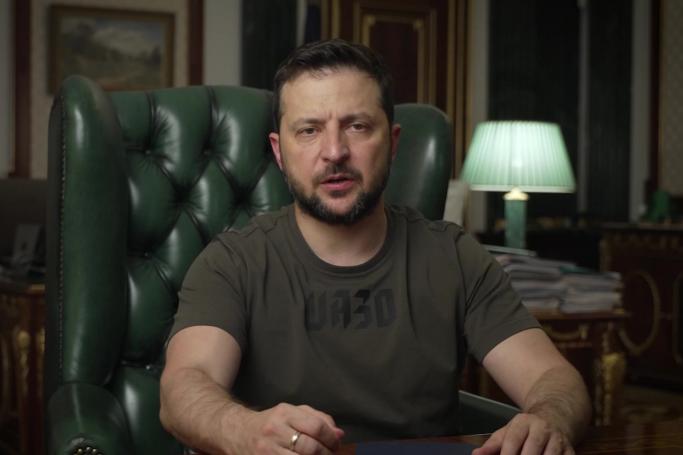President Volodymyr Zelensky on Thursday called for a "special tribunal" to investigate Russia's invasion of Ukraine, addressing a conference at The Hague focused on war crimes in Ukraine.
"Existing judicial institutions cannot bring all the guilty parties to justice. Therefore, a special tribunal is needed to address the crime of Russian aggression against Ukraine," Zelensky told the gathering via video link.
"A tribunal that will ensure the fair and lawful punishment of those who started this series of disasters," he added.
"There must be a mandatory and principled punishment for all Russian criminals," he said.
Zelensky's speech at the Hague comes hours after a Russian strike killed at least 20 civilians, including children, in the city of Vinnytsia in central Ukraine.
Organised by the International Criminal Court (ICC), the European Commission and the Netherlands, the event at The Hague was aiming to ensure that crimes committed since the Russian invasion do not go unpunished.
"As we speak, children, women and men are living in terror," said ICC prosecutor Karim Khan.
European Commissioner for Justice, Didier Reynders, told the conference Thursday that 20,000 investigations have been opened for war crimes in Ukraine.
Russia has denied all accusations against its troops, including shelling of civilians, summary executions and rapes.
"We need to work together."
The ICC opened an investigation into war crimes in March, not long after Moscow's February 24 invasion of Ukraine.
The Hague-based ICC remains the court of last resort for grave charges such as genocide, crimes against humanity, war crimes and aggression when member states are unable or unwilling to prosecute.
Ukraine's foreign minister Dmytro Kuleba earlier Thursday called for the establishment of a special court to try "the crime of aggression" -- an attack by one state against another by a political or military leader.
But the ICC cannot prosecute the crime of aggression if a country has not ratified the Rome Statute, and neither Russia nor Ukraine have done so.
Myanmar has also not signed the Rome Statute, so is not under the ICC's jurisdiction. Despite this, in November 2019 the ICC approved a full investigation of Myanmar's bloody 2017 military crackdown against the Rohingya.
Though Myanmar is not part of the ICC the court authorised the investigation because hundreds of thousands of Rohingya were forced over the border into neighbouring Bangladesh, which is an ICC member.
As soon as the investigation was announced Myanmar, at that time under the National League for Democracy (NLD) government, rejected the ICC investigation saying that it was not in accordance with international law.
But, following the February 2021 coup, on 20 August 2021 Myanmar's opposition government in exile, the National Unity Government (NUG) lodged a declaration with the International Criminal Court (ICC) accepting the court’s jurisdiction with respect to all international crimes in Myanmar since 2002.
The junta still refuses to recognise the ICC's jurisdiction.
AFP/Mizzima












